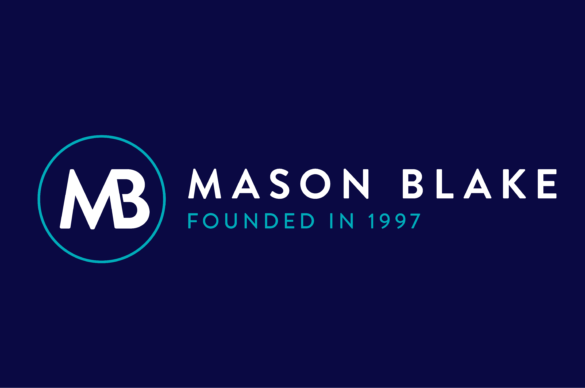Michael Henning / 16 October
What does the ‘rise of passive’ mean for the job market? (Part II)

The march of passive investing continues unabated, stirring debate and disagreement as it goes. We’re not here to join that debate, but rather to discuss what the relative asset flows mean for recruiters and candidates alike. Which skillsets are on the rise and which are falling by the wayside? It all depends on who you talk to of course. The question for recruiters is where to look for the skills necessary to efficiently and effectively run a passive strategy. The question for candidates, both new and experienced, is what skills do they need and where do they look for their next job?
In the first of a two-part article (Click here ), we looked at developments in the front office. In part II, we consider how the rise of passive is transforming product development, with the flourishing ETF industry, increasing importance of niche products and continuing rise in the prominence of ESG products and processes. Finally, we give some top-level tips to candidates on positioning their careers for the changing environment.
New directions in the product sphere
Clearly the rise of passive strategies is having far-reaching implications for product development management and strategy. The lines between the various roles in the product space are blurring rapidly and new hybrid roles, blending two or all of the roles together, are emerging as passive management continues to grow.
We’ve also seen a broader hiring theme for ETF and passive product development in the last few years. Less obvious has been that active product development role hiring hasn’t really dropped off, just shifted perhaps more to the alternatives such as ESG funds and real asset strategies, or more exotics like private debt and/or equity.
Our clients are being forced to compete strongly for the most experienced candidates, which has been bidding up salaries a bit. Yet it’s also very competitive from the candidate side, with considerable interest in these lucrative roles from candidates. We’re encouraging our clients to look for candidates with broader experience of the full product lifecycle – those with consultant experience, for example, which combine investment product lifecycle experience with client-facing skills.
We’re advising candidates to develop a clear idea of where they want to be in three or five years’ time. This can help them plan how they will go about seeking the experience and skills they will need to succeed. Conversely, the pace of change means product specialists will need to remain flexible and resilient to avoid limiting their options.
A growth theme: environmental, social and governance (ESG)
The ESG theme runs across recruitment for both active and passive houses. On the active side, we’ve seen strong growth in roles with ESG skillsets. This trend has emerged on the back of growth in ESG funds and the integration of ESG factors into more traditional active funds. ESG analysts and broader ESG team roles have grown substantially in recent years.
On the passive side, the ESG focus has been on engagement. Passive strategy managers see an opportunity to differentiate themselves from other passive managers with the strength of their company engagement strategies. Many, though certainly not all, have developed a strong ESG function.
ETF skills and experience in demand
The rise of passive ETFs is causing something of a skills crunch in the UK financial jobs market. The most experienced candidates are getting snapped up quickly, while many recruiting firms sometimes struggle to fill roles.
Companies recruiting for ETF-related roles need to be nimble. Legal & General Investment Management’s (LGIM) recruitment for its new ETF venture illustrates a trend that we have also noticed. Mark Haywood “says the firm has needed to step up and be more nimble in this jobs market, or risk losing candidates during the process. While stressing the need to always find the right candidate for the role, he noted that if a hiring process goes on too long it risks losing candidates to more nimble recruiters.”
Candidates with ETF knowledge and skills appear to be in the driving seat for the moment, but we would caution them not to jump at the first opportunity that comes along. We sometimes see candidates take the highest or first offer, only to be disappointed. As always, we firmly believe that candidates should seek the best long-term fit, which is in both their own interest and that of their employer.
Candidates need to show enthusiasm
Whatever side of the debate you are on, whatever level you are at, and whatever role you are seeking, as a candidate you need to show enthusiasm for the role, the company and the market segment you’re targeting. In the graduate recruitment arena, for example, LGIM’s Mark Haywood suggests that “Consistently unsuccessful candidates are filtered out because they do not demonstrate a passion for the role or the industry they’re interviewing for, despite impressive qualifications and/or knowledge.”
We believe recruiters are correct in seeking passion in candidates, as they will tend to stick in a role longer when things inevitably get more challenging. We would suggest perhaps probing further if a candidate initially fails to show enthusiasm as this is sometimes nothing more than nerves and inexperience at interviewing, especially if they are younger. We have seen candidates lose out that we thought would be an excellent fit, purely because of a nervous interviewing style.
The rise of passive generates challenges to both recruiting firms and those seeking a career in the asset management industry. The only guarantee is that things will continue to change, probably at an increasing pace. Mason Blake is here to support both companies and candidates to navigate these changes, helping both parties achieve their long-term goals.
Contact us for more information, or to discuss potential opportunities on 02070334499 / info@masonblake.com

